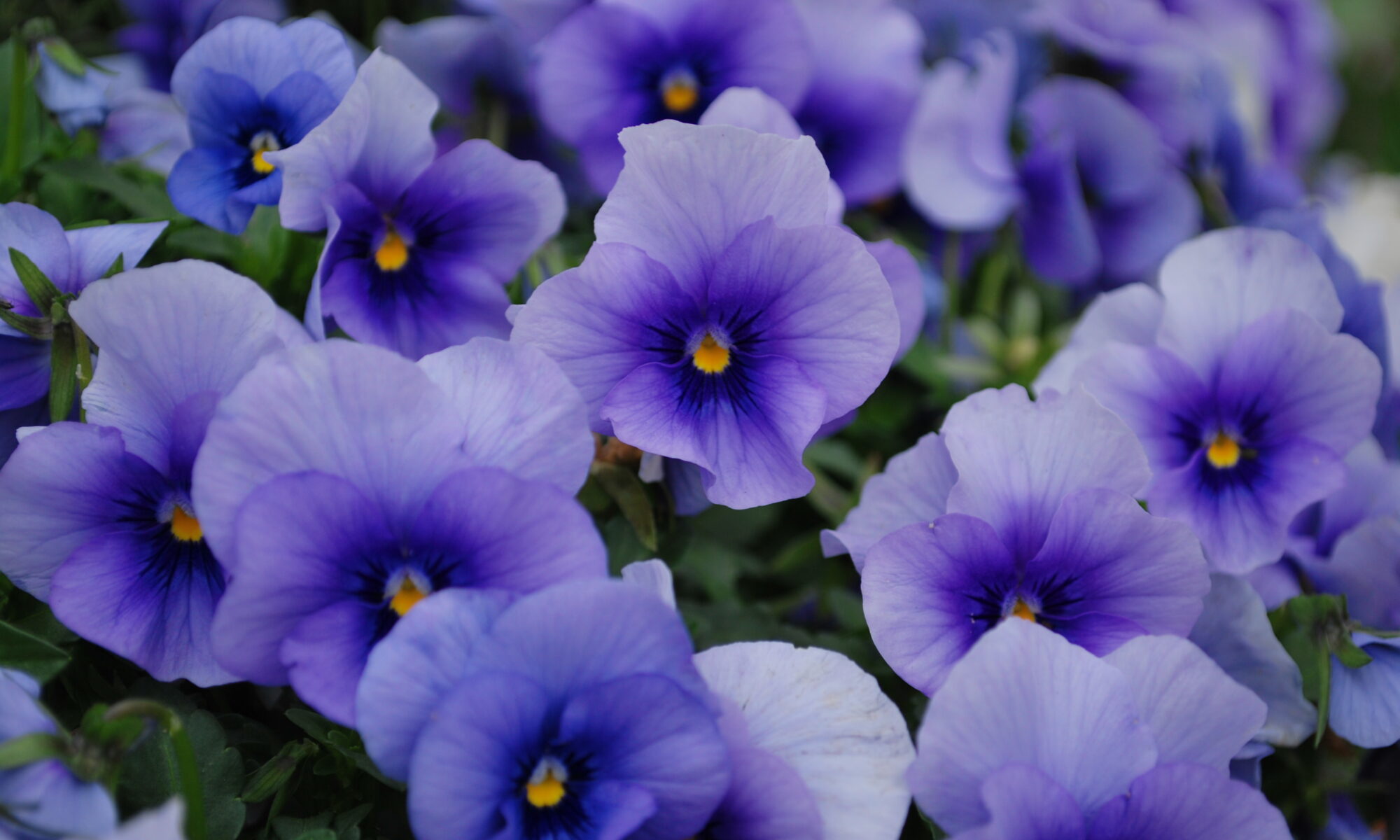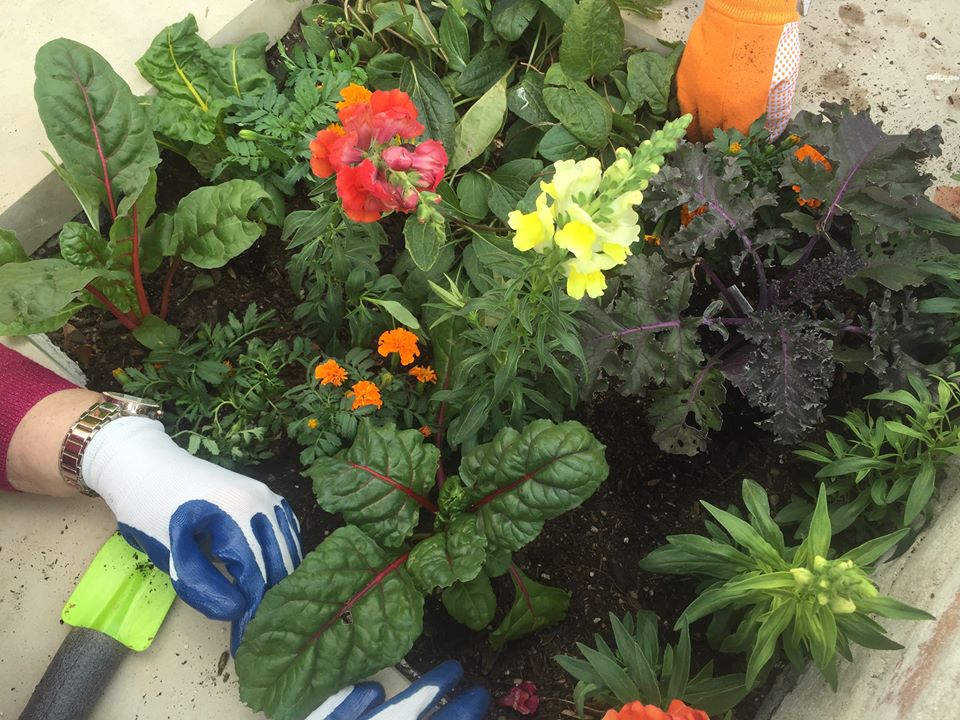| Last weekend, I had the opportunity to collaborate with a memory care community and a local plant nursery on a special planting of a new renewal garden. A group of Girl Scouts, from age 3 (sibling of a Girl Scout) on up, and the general public came out on a lovely Texas Saturday morning to help the residents and staff plant their beautiful garden.
I worked with the three-year-old on planting a ring of pansies and dianthus around a tree. We worked as a team – I pushed the short handled shovel into the ground with my foot and provided moral support and encouragement, and she wiggled the shovel to loosen the soil and then planted each plant in the ground. We exchanged a High-Five of Pride when we finished. While some of the residents planted the raised beds, others came outside to sit and watch the little ones in action. They got a kick out of the carrots that kids had eagerly harvested from an earlier summer planting of the root vegetable. Everyone was interested in tasting the harvest…though the carrots needed a good wash before that was gonna happen. Watching the generations of gardeners work together reminded me of an article by Anne Harding that I read earlier in the year. It talked about why gardening activities – or a dose of Vitamin “N” (for Nature) – are good for us. And on Saturday, I saw these benefits in action. Here are a few highlights from the article (with a few additions): Gardening exercises the body…and the mind. Get your body moving by working out in the gym…and tending the garden. General gardening tasks, like weeding and digging, are good examples of low impact exercise. And, by the end of the “workout,” you can reap the visual benefits of your physical efforts – an inviting garden. The garden is a safe place to “get lost,” exercise your muscles while allowing the mind to wander, and stimulate the senses, which may trigger memories of childhood play or tending a grandparent’s garden plot. Nature has the ability to help renew our sense of wellbeing. The more plugged into technology and removed from the outdoors we are, the more likely we are to be stressed out, tired, and generally cranky. Research suggests that immersing ourselves in nature helps to clear the mind, reduce mental fatigue, and improve mood. In fact, doctors in Japan have been prescribing shinrin-yoku – or “forest bathing,” which involves a relaxing walk through the woods – to patients as a means for reducing stress, alleviating symptoms of depression and anxiety, lowering blood pressure, and restoring a sense of self efficacy in daily life. Gardens naturally bring people together. Enjoy a family picnic under the shade of a tall tree. Bring an arrangement of garden grown flowers to a friend in need. Share the bounty of homegrown tomatoes or freshly divided iris with neighbors and coworkers. Plants can be the vessel to connect people and form social bonds. Cultivated landscapes promote a sense of security & community pride. Research studies have suggested that areas with an abundance of well maintained vegetation have overall lower crime rates of certain types. Why? The researchers think that the people living in these areas have a deeper sense of pride and connection within their community and are involved in increased surveillance of their surroundings. Plants (and soil) can help improve our overall health. Gardeners involved in growing their own food, including kids, are more likely to eat fruits and vegetables than their peers. New research also suggests that coming into contact with a certain type of soil based bacteria can help to release serotonin in our brain, thus improving mood. Credit to Richard Louv, author of Last Child in the Woods and The Nature Principle. for popularizing vitamin “N” for Nature. |

diy projects and other delights rooted in the natural world
